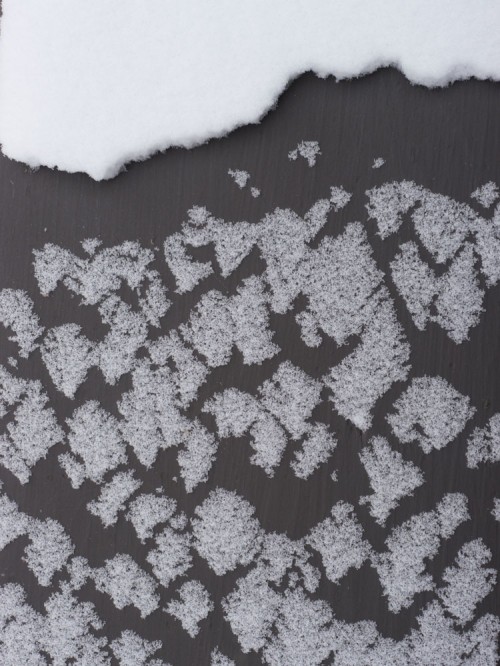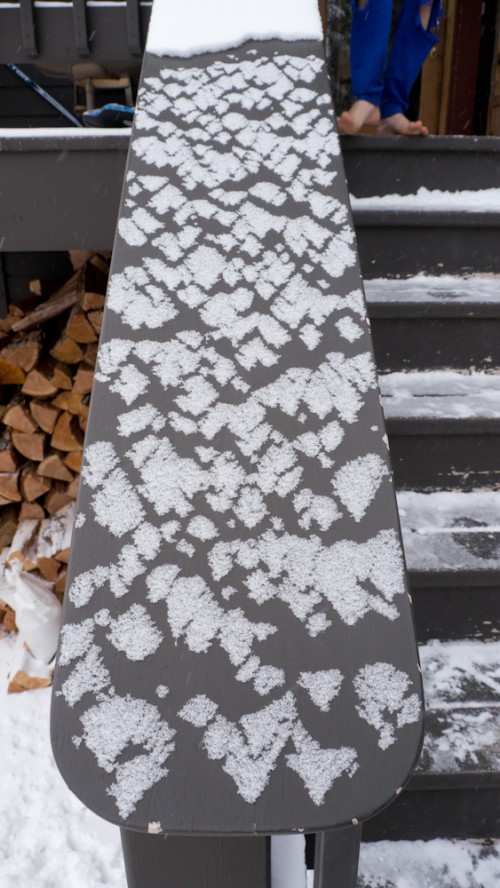Sand piles are sometimes used as a counterpoint to systems, where a system is a bunch of interconnected components that interact in some interesting way, while a sand pile is just a bunch of boring stuff. Ironically, sand piles are actually pretty interesting – they self organize. Avalanches regulate the angle of repose of the pile. In aggregate, one can think of this as a negative feedback process – when the pile is too steep, it avalanches, building up the base and lowering the top. There’s more to the picture when you look at it from a disaggregate perspective; the resulting state is an example of self-organized criticality, and if you keep adding to the pile, you get avalanches at all scales (i.e. a power law distribution).
Overnight, nature left me a nice example of a snow pile system on our front stair railing. At some point, the accumulated snow on the handrail partially avalanched, leaving bare wood on its lower half. Evidently the railing is at just the right angle for the ongoing snowfall, fine grains due to the cold, to make a kind of cellular automaton, resulting in this surprisingly regular pattern, reminiscent of a Sierpinski triangle or one of Wolfram’s elementary systems.



Thanks Tom. Can you explain the difference between SOC and HOT –
Self organized criticality and Highly optimized tolerance?
See http://bit.ly/w64IGd Or better still how about a picture?
kind regards
Hmm … a picture? I could start a forest fire I guess. I’ll have to ponder this a bit; not really my area.
Thanks for this. I had the very same reaction when reading Donnella’s Meadows otherwise excellent Systems Thinking, where she made the same disparaging comparison of sand piles to “systems”. I remember thinking “what?!? what about self-organized criticality and power law distributions?? I had even seen sand piles proposed as a model for mass extinctions in a SciAm article in the early 90s.
So bravo sir! You’ve vindicated my indignant response. 🙂
Cheers.
Ulp; typically, I remember an obscure SciAm article from 20 yrs ago but flub the title of a book I read only a few years ago. Obviously, Meadows’ book is Thinking in Systems :/